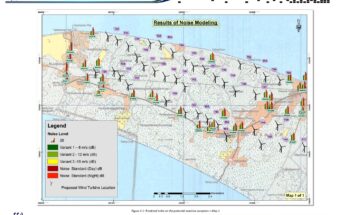Sri Lankan Authorities and the members of the public were able to rescue more than 100 whales that had been stranded in the coast of Panadura, of western Sri Lanka. The pod of pilot whales began beaching in the wee hours of the 2nd Monday and within an hour more than 100 whales could be seen beached fighting for their lives. The animals were about 10 to 20 feet in size and releasing them back in to the waters was a very difficult task given their large bodies and darkness of the night.

In the evening itself residents of the area began pushing and towing them back in to the water with all their efforts, with the night falling in more help from the government authorities, coast guard, Sri Lanka Navy, other organizations and environmental experts arrived and the difficult battle went on to the morning hours of 3rd Tuesday. Even a group of 4WD vehicles joined the efforts by providing lights to facilitate the mission that was going on the darkness of the night. By the early hours of Monday almost all the whales from the pod had been released in to the deep waters. Unfortunately, two whales that could not make it could be seen dead on the beach in the morning.
Among the huge crowd trying to save the animals last night was Dr. Asha de. Vos, the world-famous Sri Lankan Marine biologist and educator who is an expert of these animals and their behaviors. With all her expertise she guided the people to handle the animals safely and release them in to the deep waters. In her facebook page she wrote about the event explaining the science behind these stranding events that happen from time to time in different parts of the world.
“These are pilot whales. A species known to strand. We experienced a stranding event on the east coast of Sri Lanka a few years ago and in September 2020 Australia witnessed the largest pilot whale stranding event in its history with an estimated 470 whales stranding. Sadly, not all survived. “
“Why do they strand? We don’t fully know. But scientists assume it’s because of their highly social nature. If one animal strays too close to the coastline and gets pushed onto the beach by the waves, there is a high chance the others will follow. “
“Rescuing these animals is not just about rolling them out to sea again. It’s a little more complicated than that. It’s important to refloat the animals as soon as possible and guide them back to deeper waters or they will keep getting pushed back to shore. This causes them to fatigue. If they end up on the beach, they must be kept wet (think towels) and their blow holes must not be obstructed. “
“If they lie on the beach for more than a few hours, the animals are as good as dead. The weight of their bodies will crush their organs in the absence of the buoyancy of the water. In this case, the animals often need to be euthanized.” Dr. Asha wrote.

In a live video she posted later she thanked all those who supported this rescue mission risking their lives in this difficult time. This incident is another pure example of how sensitive Sri Lankan people are towards the nature and these innocent animals.





Excellent work done. Congratulations and good wishes to the scientists and kind hearted people who participated in this rescue effort. May there be such meritorious
acts extended to rescue innocent and helpless old people abandoned on the way side. This, indeed was shocking news as reported in the media a few days ago.